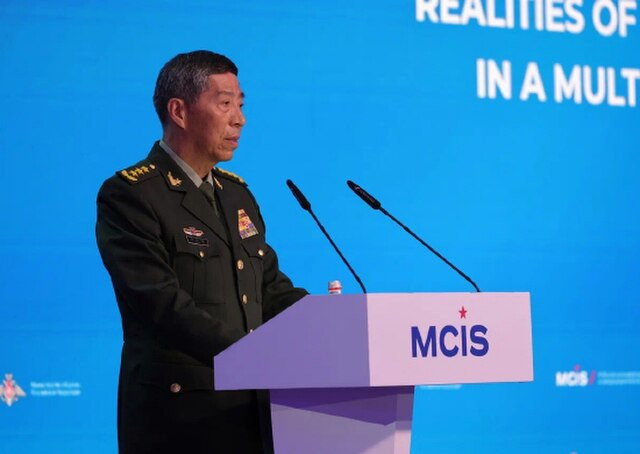In a series of events that have raised eyebrows globally, two high-ranking Chinese officials have mysteriously vanished from the public eye, highlighting the unpredictable nature of President Xi Jinping's administration.
General Li Shangfu, China's defense minister, was last publicly seen on August 29, delivering a speech at a China-Africa security forum in Beijing. His absence from an international meeting in early September, where he was expected, was initially attributed to a "health condition" by Chinese officials. However, recent reports suggest that he might be under investigation for corruption and is on the verge of being removed from his position. This speculation has yet to be confirmed by Chinese spokespersons.
This puzzling situation mirrors the earlier disappearance of China's former foreign minister, Qin Gang. Qin was last seen in public on June 25 and was subsequently replaced in his cabinet position by his predecessor, Wang Yi. Initial reports hinted at "health issues" and rumors of an extramarital affair, but Qin has yet to resurface in public.
Such sudden and unexplained absences of top officials are rare in the Chinese Communist Party's hierarchy. Victor Shih, a professor of political science at the University of California in San Diego, notes that officials undergo rigorous vetting before appointments to ensure stability. Both Li and Qin had recently been promoted to the State Council, China's top administrative body. "You would think that everyone who's left has already shown that they're very loyal to [Xi]," Shih remarked, "or they would not be in senior positions."
The sudden departures of these officials not only generate intrigue but also pose challenges for foreign businesses and governments seeking to work with China. Chen Gang, deputy director of the East Asia Institute at the National University of Singapore, emphasized that businesses dislike uncertainties. China's increasing lack of transparency and the potential for sudden policy shifts, as indicated by the abrupt removal of these officials, heightens the risks for foreign investors. However, Chen also sees a potential "window of opportunity" for a change in China's current foreign engagement approach, which has become increasingly hostile.
Drew Thompson, a former Pentagon official and senior fellow at the Lee Kuan Yew School of Public Policy at the National University of Singapore, believes that these events underscore Xi's consolidation of power, rendering other government officials expendable. Despite the ongoing economic challenges and reported doubts about Xi's competence within the CCP, Thompson suggests that current Chinese officials will likely become even more hesitant in decision-making or expressing dissent.
"This presents a tremendous challenge to companies seeking to influence or even inform decision-makers in China about the impact of their policies," Thompson added. As foreign entities attempt to engage with Chinese counterparts, they find themselves interacting more with policy implementers than actual decision-makers.
The international community will be closely watching for any further developments or clarifications regarding the sudden disappearances of these top Chinese officials.





